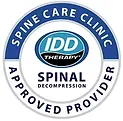
Hello
My name is Dot and I am a Phlebotomist. Before joining the team at Active Therapy Clinic, I worked in a GP surgery, providing B12 boosters, immunisations, ECGs, blood pressure and health checks. If you would like to make an appointment to discuss how we can help you please fill in the contact form below.
VITAMIN C
Vitamin C is also known as Ascorbic Acid, it is a water soluble vitamin and antioxidant
-
It helps protect cells and keep them healthy
-
Maintains healthy skin, blood vessels, bones, cartilage and tissues.
-
Helps wound healing
-
Can help to prevent clotting and reduce the risk of heart disease
-
Can help reduce the risk of some cancers
-
Helps the hormonal components of the nervous system
-
Assists in the production of collagen, carnitine, hormones and amino acids
-
Helps to keep cholesterol levels low
Lack of Vitamin C can lead to scurvy.
Mild deficiencies can be found in people with poor or restricted diet or on a fad diet.
Vitamin C cannot be stored in the body so is needed daily!
Symptoms of Vitamin C Deficiency
-
Impaired wound healing
-
Inflamed and bleeding gums
-
Easily bruised
-
nose bleeds
-
Pain in muscles and joints (swelling)
-
Blue or red spots on the skin
-
Low mood
-
Irritability
-
Weakness
-
Fatigue
-
Depression
How do we get Vitamin C? We get Vitamin C through a healthy balanced diet
-
Red Peppers
-
Sprouts
-
Fresh Orange juice
-
Oranges and other citrus fruits
-
Tomatoes
-
Strawberries
-
Blackberries
-
Kiwis
-
Bananas
-
Blueberries
-
Garlic
-
Broccoli
It is important to have a varied diet. You need a minimum of 5 portions of fruit and veg a day, but is is suggested 7+ portions is better.
High Vitamin C levels help protect from certain disease, it reduces lung cancer in females by 20%.
What and who is affected by Vitamin C levels?
-
Surgeries can lead to reduced or restricted diet
-
Smokers require more, possibly passive smokers require almost double the intake than that of non-smokers
-
Digestive conditions such as Crohn's disease, Ulcerative Colitis
-
Elderly
-
Addictions to drugs and alcohol
How do we get Vitamin C?
It is absorbed in the stomach and the upper intestine membranes. A varied diet of fruit and vegetables is the best way to get Vitamin C.
How do we give Vitamin C?
It is given intramuscularly into the buttocks.
How do I test Vitamin C levels?
This can be done with a vitamin screen test.
Side Effects
Usually none at all, but can rarely include:
-
Allergic reaction such as sneezing or mild asthma (wheezing, tight chest)
-
Anaphylactic shock
-
Low blood pressure
-
Pins and needles
-
Injection site soreness, swelling and achy
-
Dizziness
-
Blurred Vision
-
Rash
-
Headache
-
Diarrhoes
-
Urine may become acidic and hurt when urinating and can change colour
Contraindications
-
Kidney and liver problems
-
Anticoagulants
-
Undergoing acute treatment
-
Pregnancy and breastfeeding
-
Allergy to any of the products
-
Hypersensitivity to any of the product
-
Diabetes Mellitus
-
Hyperthyroidism
-
Have and active peptic ulcer
-
Heart conditions
-
Chemotherapy
-
Statins
-
Haemachromatosis (iron levels)
References
https://www.nhs.uk/conditions/scurvy/
https://www.nhs.uk/conditions/vitamins-and-minerals/vitamin-c/
https://www.nhs.uk/live-well/eat-well/
This is for information purposes and is not conclusive and/or legally binding in any way.






